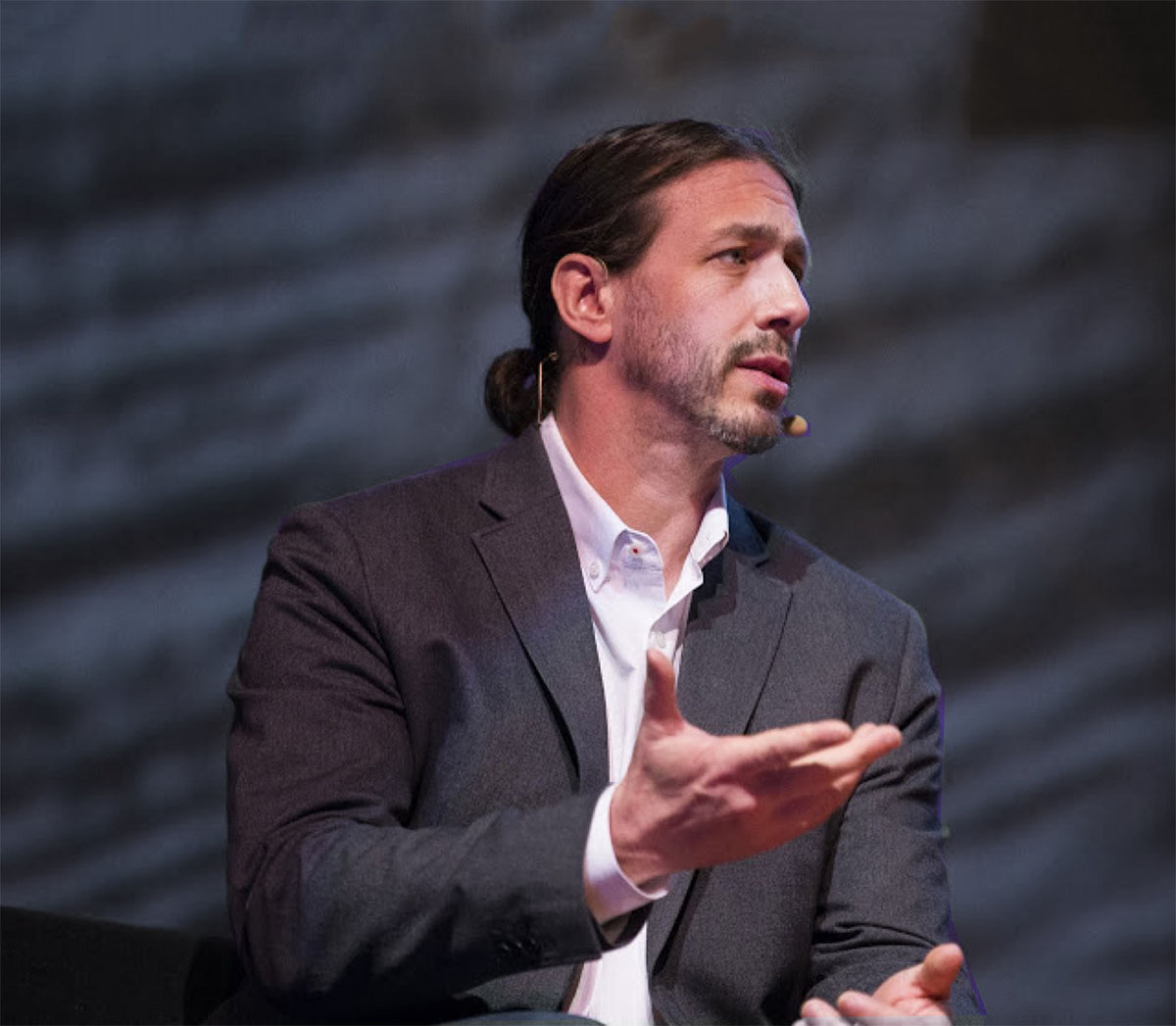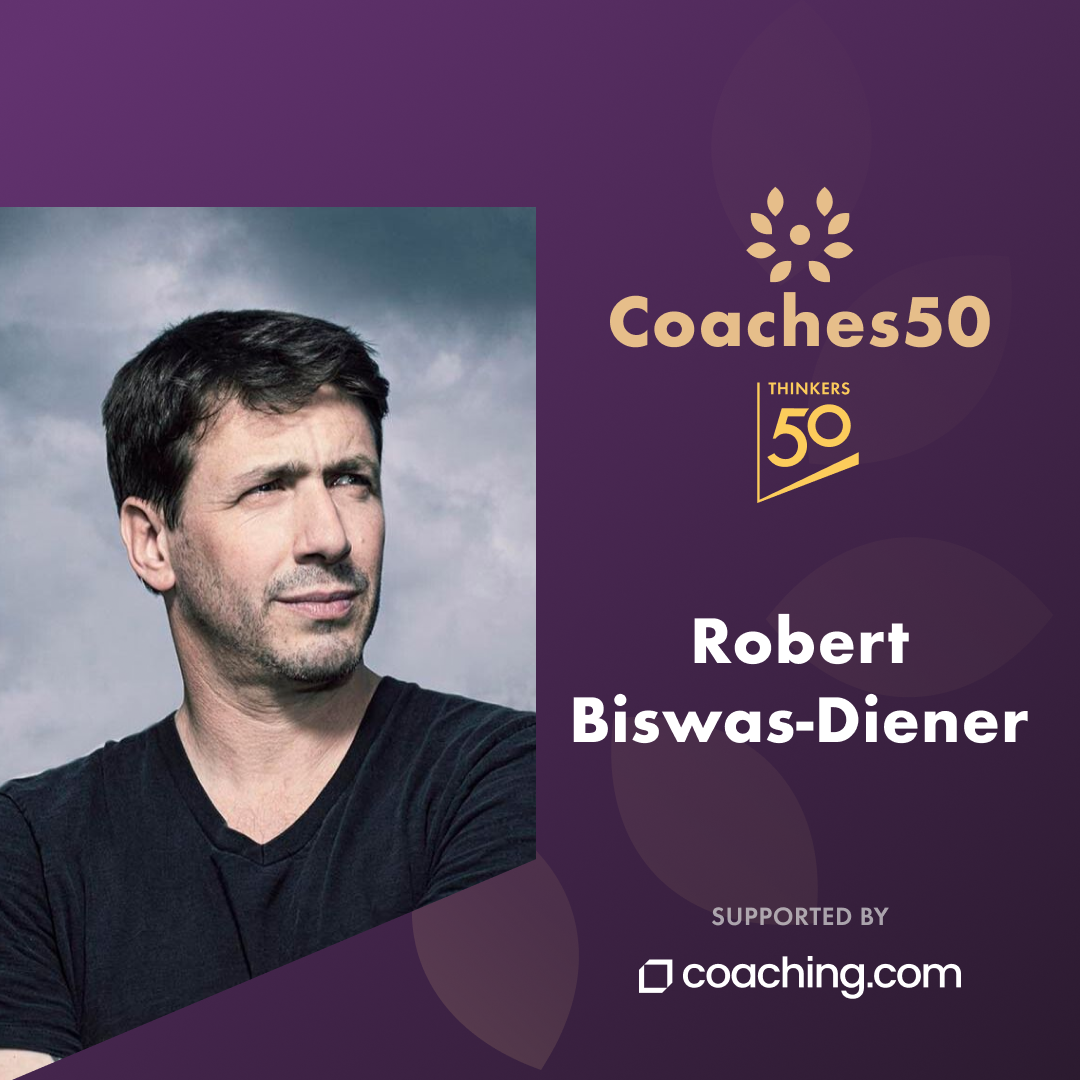How to Become a Coach
By Dr. Robert Biswas-Diener

Coaching is a growing profession, but many people are curious and confused about how to become a coach. Here’s how...
In this post
Introduction
These days, it seems like everyone is a coach. There are, of course, sports coaches. There are also life coaches and executive coaches. My health insurance will even provide me with a health coach. If that’s not enough, there are coaches specializing in every aspect of life: retirement coaches, dissertation coaches, and team coaches. Coaching has become so widespread that it is frequently spoofed. One national advertisement showcases a “parent coach” who works with twenty-somethings to help them avoid turning into their parents. Similarly, a popular social media personality pokes fun at coaching by jokingly saying that he doesn’t sell “get rich quick” schemes but, instead, peddles “get rich immediately” schemes. When people spend this type of thought and money on lampooning your profession, you know you have arrived.
Many people who are attracted to the idea of becoming a coach wonder how all these coaches arrived at their current professional status. Their curiosity and confusion are easy to understand. There is no single clear path to becoming a coach like becoming an officer in the military or a medical doctor. Coaching is distinct because there are no universal laws or professional bodies that govern the profession. This means that you could hang out a shingle right this second. You shouldn’t, however. Not without training and reflection.
Here, you will find a broad overview of the path to professional coaching.
How I got here
Like many people, I ended up as a coach. That is, I didn’t walk around as a child saying, “when I grow up, I want to be a coach.” In fact, I wanted to be a movie star (first choice) or an Egyptologist (second choice) because I was highly impacted by the movie Raiders of the Lost Ark. I suppose that if I had different cinematic tastes, I probably would have wanted to be a coach.
By the time I was out of my Egyptology phase and choosing a course of study at college, I was drawn to psychology. People have always fascinated me. I love observing their behavior and am curious about their motivations and emotions. It helps that both of my parents and both of my older sisters are psychologists. As a result, I followed a path to a Master’s Degree in clinical psychology. I was on my way to becoming a therapist when I discovered that I did not, in fact, want to be a therapist. I admire the work but did not want it for myself. I made a minor adjustment and became a social psychologist, researching happiness with groups typically overlooked by laboratory scientists: the Amish, the Inuit, and the Maasai (to name a few).
A few years into my research career, I knew something was missing. Don’t get me wrong; it was fun to travel the world and study happiness. Even so, I felt the hole left by my student psychotherapy practice. I longed for those moments when I could really help someone face-to-face. It was then that I discovered coaching. I was attracted to the fact that it was not focused on clinical disorders, that it drew on my conversational acumen, and that it was a profession with a huge opportunity for growth.
If you listen to the stories of many coaches, you will hear a familiar theme: for many people, coaching represents a career change that affords a degree of independence and is service-oriented.

Understand What Coaching Is
Perhaps the first step in becoming a coach is clearly understanding what coaching is. I have heard from psychotherapists that their clinical work is “basically coaching” and from medical doctors that seeing patients is akin to “health coaching” and from former executives that their expert advice constitutes coaching. Unfortunately, this is not true. In each case, these attitudes reflect a fundamental misunderstanding of what coaching is.
Simply put, coaching is a relationship in which the coach engages the client in self-directed learning and planning. This means that coaches are not experts (like psychotherapists), they do not prescribe (like medical doctors), and they do not advise (like mentors). Mostly, coaches ask questions.
A health and wellness coach, for instance, might work with a client who wants to manage her diabetes and increase her fitness. The coach would not advise a specific nutritional plan, medication regimen, or order blood tests. Instead, the coach would work with the client to better understand and harness the factors that might support her success. If you were able to observe this work, you would likely hear questions such as:
- When have you been the healthiest? What is distinct about this/these times?
- What is a small change you would be willing to make that you believe will be successful?
- How, specifically, will improved fitness benefit you?
- Who supports your health?
You can see that in each of these cases, the coach assumes no particular expertise. Even though the coach might know about diet and nutrition, she does not know about the client’s unique values, social life, motivations, temptations, strengths, and past successes. As a result, good coaches approach clients with curiosity, asking broad questions that help both parties identify and understand obstacles and supports. From these questions, coaches typically work with clients to create small plans—sometimes just a behavioral experiment to try between sessions—and then hold clients accountable for executing them.
Knowing this about coaching—that it is more like curious interviewing than advising or teaching—can help you better understand if it appeals to you as a profession.
Formal Training
If this description of coaching does appeal, then it will be helpful to understand the training process. Most coaches receive some formal training, and many who are certified have undertaken extensive training. By and large, this training follows one of two possible paths:
University-based training: Some universities offer professional certificates or Master’s Degrees in coaching. They tend to be one to two-year programs, are rigorous, and employ a variety of faculty.
Private training through an approved provider: There are nearly 500 providers approved by the International Coaching Federation (ICF) that offer training that counts toward certification. (Full disclosure: Positive Acorn is one such provider). Typically, these providers provide between 60 and 125 hours of training. The ICF mandates that coursework must provide training in established core competencies, cover ICF ethics, and offer written and verbal feedback on observed coaching.
There is an adage that “coaching is easy to learn but hard to master.” It’s true: coaching is not rocket science. Regardless of the specific approach to coaching, most coaching starts with setting an agenda for the session, shifts into exploration and questions, which leads to planning and goal setting, and wraps up with accountability. Pretty simple in the abstract but deceptively tricky to do in practice.
I’ll give you a simple example of this: agenda-setting. Most people have an instinctual sense of how to set an agenda. It looks something like asking, “what would you like to be coached on?” That makes sense, but that question is really only half of the agenda. After you have established the session’s topic or theme, it is essential to determine what the client wants to achieve in the coaching session. This is the second part of the agenda, and it looks something like asking, “What, specifically, would you like to achieve by the end of this session?” Many people overlook that crucial second part to the agenda, and doing so can lead to problems: you might not be satisfying the client’s desires, you might not know where you are headed, you might not know if you are making progress, and so forth. This, in my opinion, is a perfect example of why people should receive formal training in coaching and not just assume that they intuitively understand how the process works.
If you do opt for formal training—and I recommend it for those who want to be responsible practitioners—here are a few questions that serve as helpful guidelines for choosing a provider (apart from schedule and cost, of course):
- Do experienced and credentialed instructors teach the courses?
- Does the program emphasize the learning of skills? (this means opportunities for practice and feedback)
- Is the program spread out over time (better for acquiring skills) or offered over a weekend or similarly short period of time (worse for acquiring skills)?
- Does the coursework count for ICF training or continuing education credits?
- Does the program prioritize its own proprietary model (e.g. “The Dynamic-Reflective Leadership System®” or does it emphasize practical skills that are easily understood, used, and shared?
- Is there a specific and overt emphasis on ethical decision making and responsible practice?
My final word of advice here is that many prospective coaches prefer coach training that is face-to-face. I believe that this reflects a view of being “in person” as superior because, supposedly, it provides far more information. When people are together, there is touch, and emotion, and tiny facial expressions, and all sorts of connection and information that is largely unavailable in digital platforms. I understand how tempting it is to think this way, but that is not my experience. Many coaches work entirely remotely in ways that are effective and socially connected. Similarly, many coach training providers offer virtual training that is also effective.
The advantages to virtual training include:
- The ability to stretch training out over days or weeks or months, which is superior for learning skills
- The digital platform induces coaches to listen more deeply.
- There is research evidence suggesting that people feel connected to one another in any “synchronous” (real-time) communication, including in-person, telephone, or video conversations.
ICF Coach Training Requirements At-a-Glance
- 60 Hours of coursework
- 100 Hours of client contact
- Receive 10 hours of mentoring from a certified coach
- Submit a recording of a coaching session to the ICF for review
- Pass a Coach Knowledge Assessment
Other Training
Some coaches mix and match their training by taking a variety of courses from multiple providers. I like this approach because it offers novice coaches exposure to a variety of different styles and approaches. At my own coach training school, Positive Acorn, we love to provide group mentoring, but we also expressly encourage our students to seek out at least three hours of mentoring elsewhere. This is one way I protect against suggesting that my approach to coaching is the end of the story. I want my students to gain insights from other experienced coaches.
One other type of training that is common among coaches is training in a specific assessment. There are a variety of assessments related to personality, work style, strengths and weaknesses, interests, and other topics relevant to coaching. Not all of these assessments require formal certification, but I generally recommend opting for training if it is available, even if it is optional. This ensures that you are using best practices, and it raises the standards for practice that is good for your clients and a good reflection on the coaching profession in general.
Conclusion
The byzantine world of coach training can be overwhelming and confusing. I have had countless conversations with people that boil down to the same few questions: “Is coaching for me?”, “Should I get formal training?” and “Which training program is right for me?” The answers to these queries are as varied as there are people. Even so, you can get a jump start on the process by answering these concluding questions:
Is coaching for me? — Are you a social and service-oriented person who is attracted to helping people craft more productive, successful, and fulfilling lives? Are you highly independent and can work without a large team? Are you a reflective person who wants to improve your own skill while ensuring that you act ethically and responsibly? A “yes” answer to these questions is a good indicator that coaching might be worth investigating.
Should I get formal training? – In a word, yes. The amount and type of training you get might depend on your professional background. Therapists, for example, tend to be well-versed in conversation-based interventions. Teachers tend to be experts at facilitating learning. Regardless of your history and existing skill-set, you almost certainly will want to learn about coaching-specific skills such as agenda-setting, asking thought-provoking questions, spotting strengths, and igniting motivation.
Which training program is for me? – Ultimately, this is a question that will depend on professional needs, scheduling and budgetary concerns, and the approach to coaching that most appeals to you.
I wish you luck and success in your explorations!

About the author
Dr. Robert Biswas-Diener
Dr. Robert Biswas-Diener is passionate about leaving the research laboratory and working in the field. His studies have taken him to such far-flung places as Greenland, India, Kenya, and Israel. He is a leading authority on strengths, culture, courage, and happiness and is known for his pioneering work in the application of positive psychology to coaching.
Robert has authored more than 75 peer-reviewed academic articles and chapters, four of which are “citation classics” (cited more than 1,000 times each). Dr. Biswas-Diener has authored nine books, including the 2007 PROSE Award winner, Happiness, the New York Times Best Seller, The Upside of Your Dark Side, the 2023 coaching book Positive Provocation, and Radical Listening, in 2025.
Thinkers50 named Robert to be among the 50 most influential executive coaches in the world.
Robert Biswas-Diener

Get updates and exclusive resources



